Boston Fern - Nephrolepis exaltata
Contents
- What are the Causes of Airborne Toxins?
- Top 10 Air Purifying Houseplants
- Other Non-Mentioned Species
Need the answer to a specific plant query? Book a 1-to-1 video call with Joe Bagley, the website's friendly author, to overcome and address your niggling problem! Available on iMessage, WhatsApp, Facebook Messenger & more.
What are the Causes of Airborne Toxins?
Back in 1989, NASA conducted the famous 'Clean Air Study', to see if individual plants could clean the atmosphere in space stations. They tested eighteen of the most popular houseplants of that time and found that many of them removed more than just carbon dioxide. The list below consists of the five main toxins that are commonly found in a typical household.
Benzene - Used in the process of making plastics, synthetic fibres, resins, detergents & also found in cigarette or exhaust fumes.
Formaldehyde - Found in paper towels, paper bags, napkins, plywood and synthetic fabrics.
Trichloroethylene - Varnishes, adhesives, paint remover and printing inks.
Xylene & Toluene - Found in printing inks, leather, paints, tobacco smoke and car exhaust fumes.
Ammonia - Window cleaners, floor waxes, smelling salts and some plant fertilisers.
NASA's study suggested that having one plant per 9.3m² (100 square feet) was sufficient enough to pull most of the toxins from its atmosphere. Although the study has had contradicting results when tested in an office and domestic environment, it was a groundbreaking discovery for the houseplant industry. The list below consists of the top ten best-performing species or genera that was included in NASA's 1989 study.
Top 10
N. B. - Those which DON'T state that they're pet-friendly are unfortunately toxic if eaten. The 'Life-Expectancy & Size' section is just a projection of the average age for the specimen - most plants can easily surpass this when correctly cultivated.
1. Florist Chrysanthemums
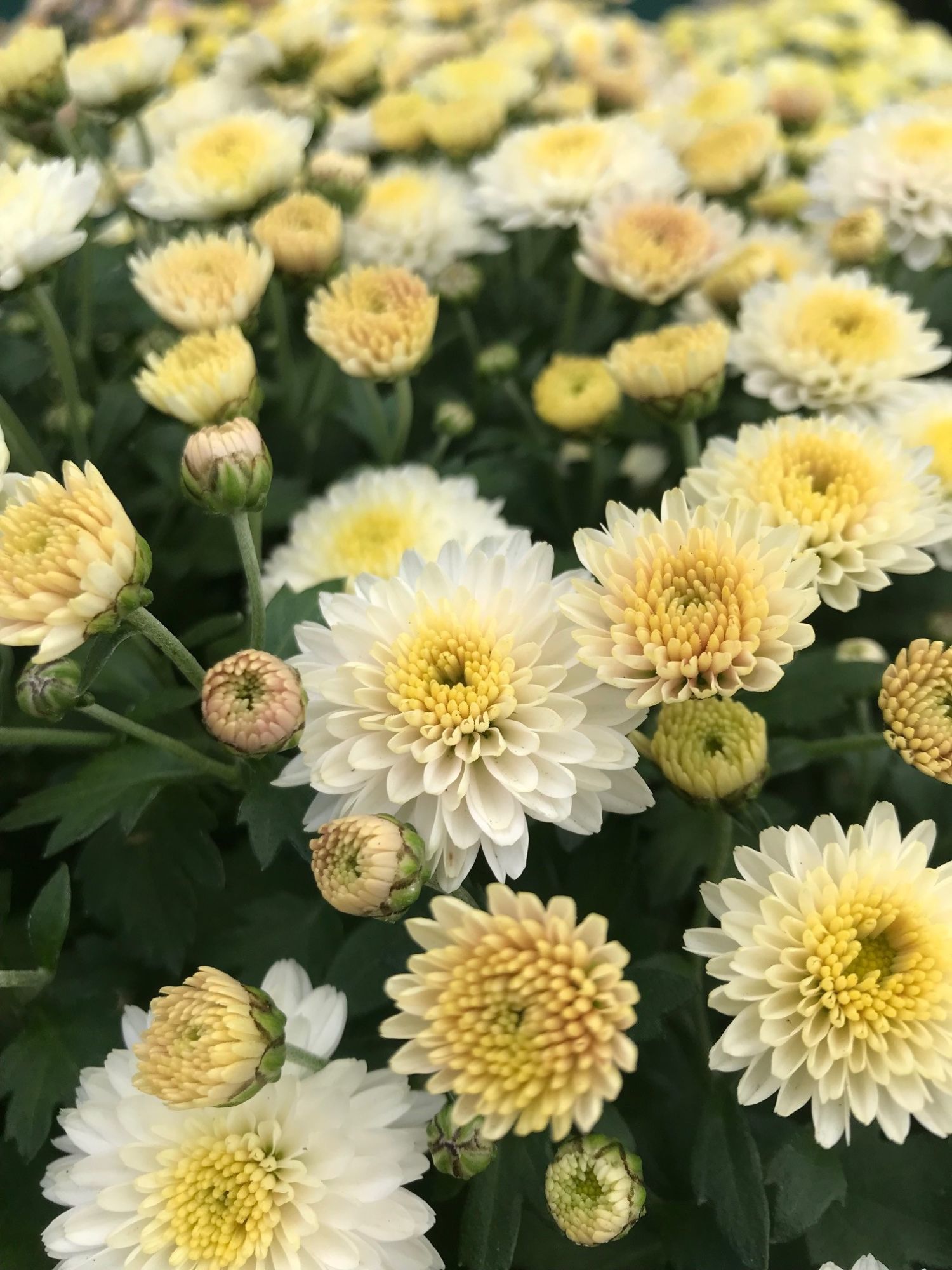 Chrysanthemum indicum
Chrysanthemum indicum
• Available at Most Stores & Cheap
• Perennial with a Long-Lasting Show of Flowers
• Life Expectancy & Spread - 8 years, up to 1m in height & width.
Chrysanthemums are by far the best, all-round specimen on this list. Not only do they remove ALL of the five main toxins, but they can also absorb high levels of it. You're most likely to find one of these during the spring and summer at most garden centres, with them predominantly being sold outside.
2. Peace Lillies
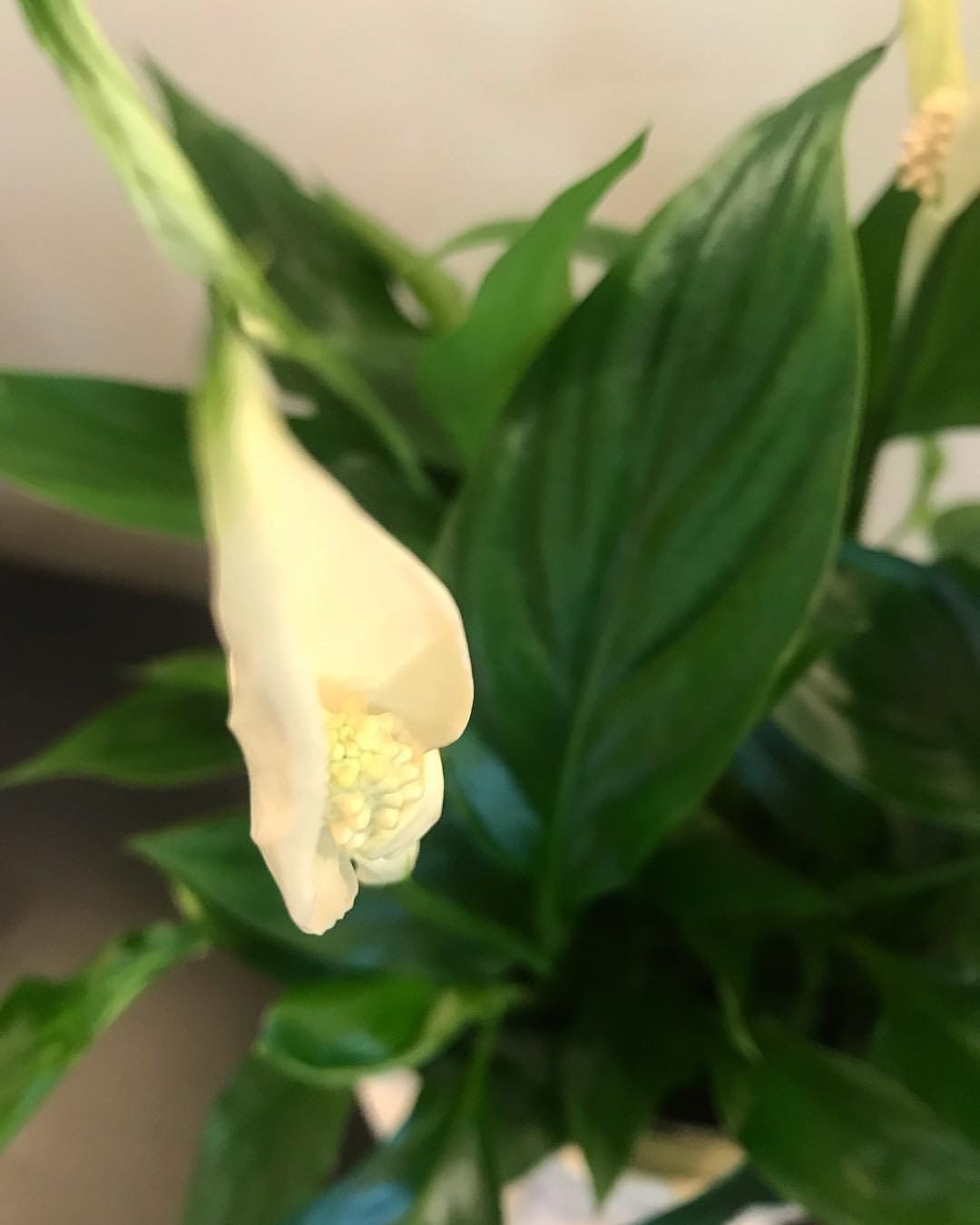 Spathiphyllum 'Chopin'
Spathiphyllum 'Chopin'
• Easy-Care Requirements
• Perennial With Long-Lasting Flowers
• Life Expectancy & Spread - 10 years, up to 1m in height & 0.6m in width.
Peace Lillies are the ukhouseplants' go-to for a shade-tolerate, air-purifying plant. They'll remove the five main toxins from the atmosphere and will reward you with fresh leaves and a cluster of flowers throughout the year. You can find this species in almost every garden centre for a relatively low price - so what are you waiting for?!
3. Lady Palms - Rhapsis Excelsa
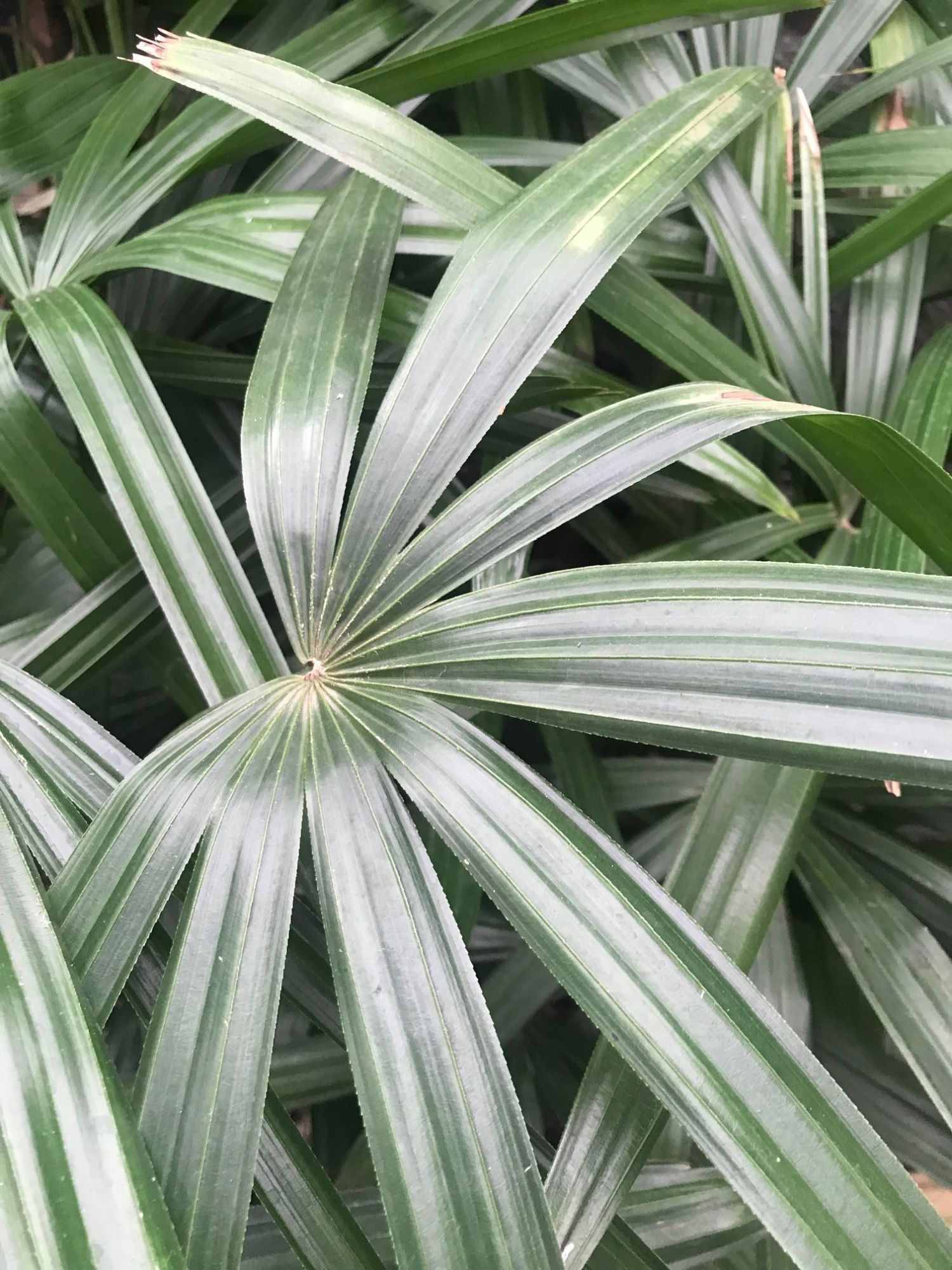
• Easy Care Requirements
• Perennial With Long-Lasting Flowers
• Life Expectancy & Spread - 10 years, up to 1m in height & 0.6m in width.
Lady Palms are the largest species on this list. Because of the large surface area of leaves, it'll be able to pull more toxins from the surroundings compared to its smaller counterparts in this list. The only downside to this plant is its availability in physical stores; you'll, unfortunately, have to search online to find the perfect specimen.
4. Chamaedorea (Parlour & Bamboo Palm)
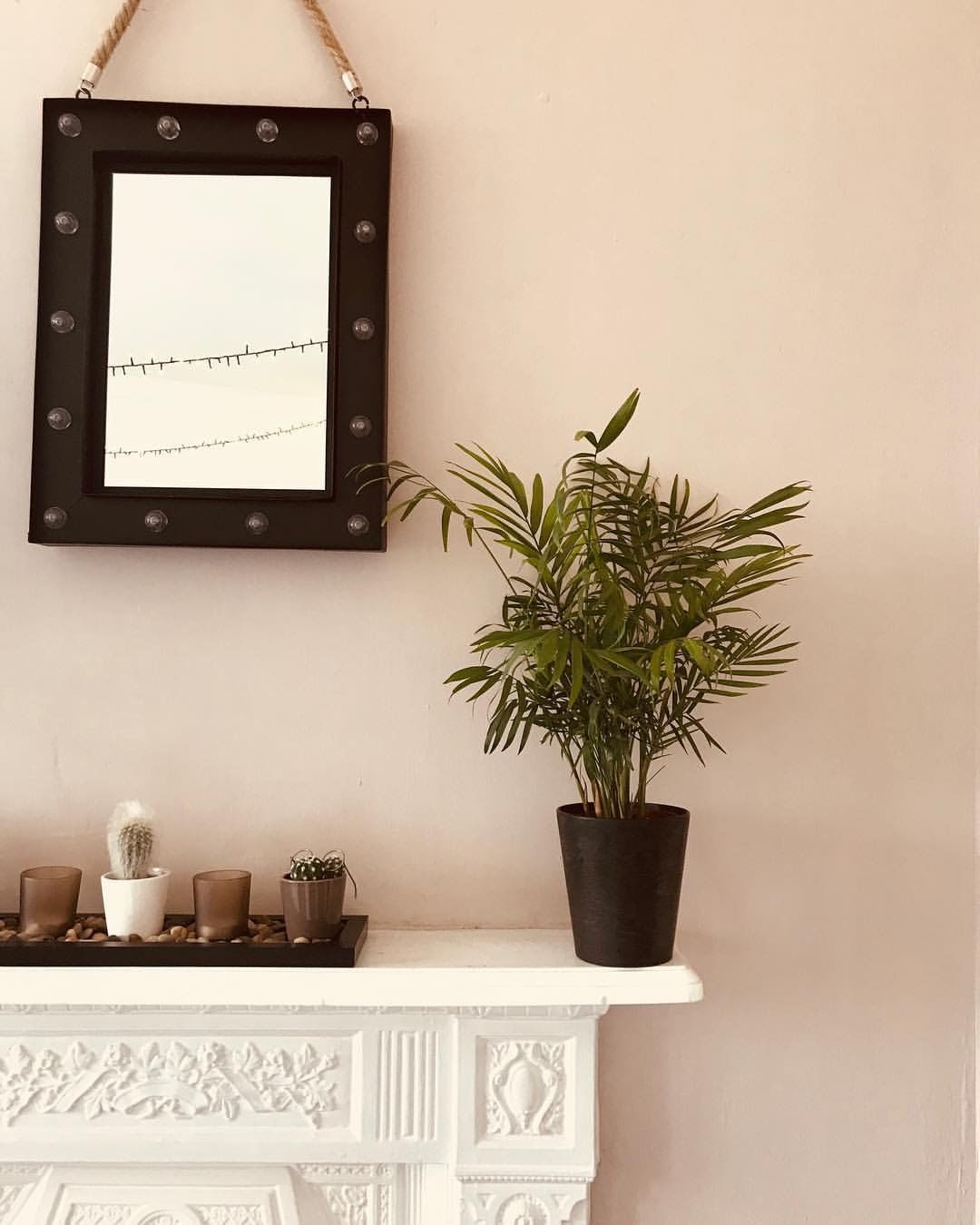 Chamaedorea elegans• Pet-Friendly & Cheap
Chamaedorea elegans• Pet-Friendly & Cheap
• Easy to Cultivate
• Life Expectancy & Spread - 10 years, up to 0.6m in height & 0.8m in width.
Parlour Palms have been domestically cultivated since the latter stage of the Victorian era. Coupled with its easy-care nature and ability to thrive in all light levels, they'll also remove the five main toxins listed above. You can purchase one this Palm cheaply from all garden centres, including some supermarkets, too.
5. Dracaena (Genus)
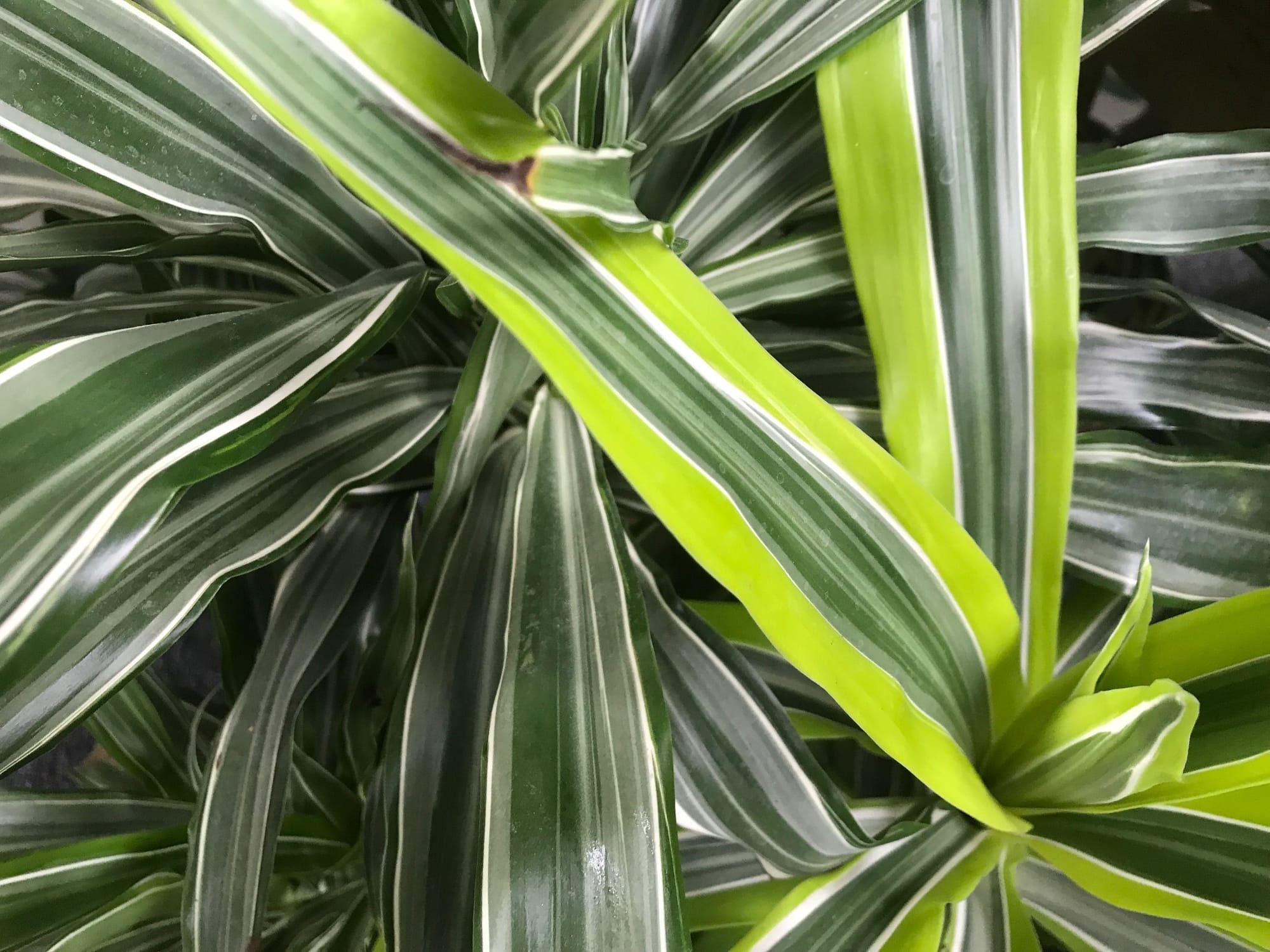
• Adds Texture to a Decor & May Grow Large Over Time
• A Great Investment for Money & Air Purification
• Life Expectancy & Spread - 15 years, over 2m in height & 0.7m in width.
NASA tested three species of Dracaena in their Clean Air Study - the D. marginata, D. fragrans and D. deremensis. All three passed with flying colours, with the latter being the best.
6. Sansevieria trifisciata 'Laurentii'
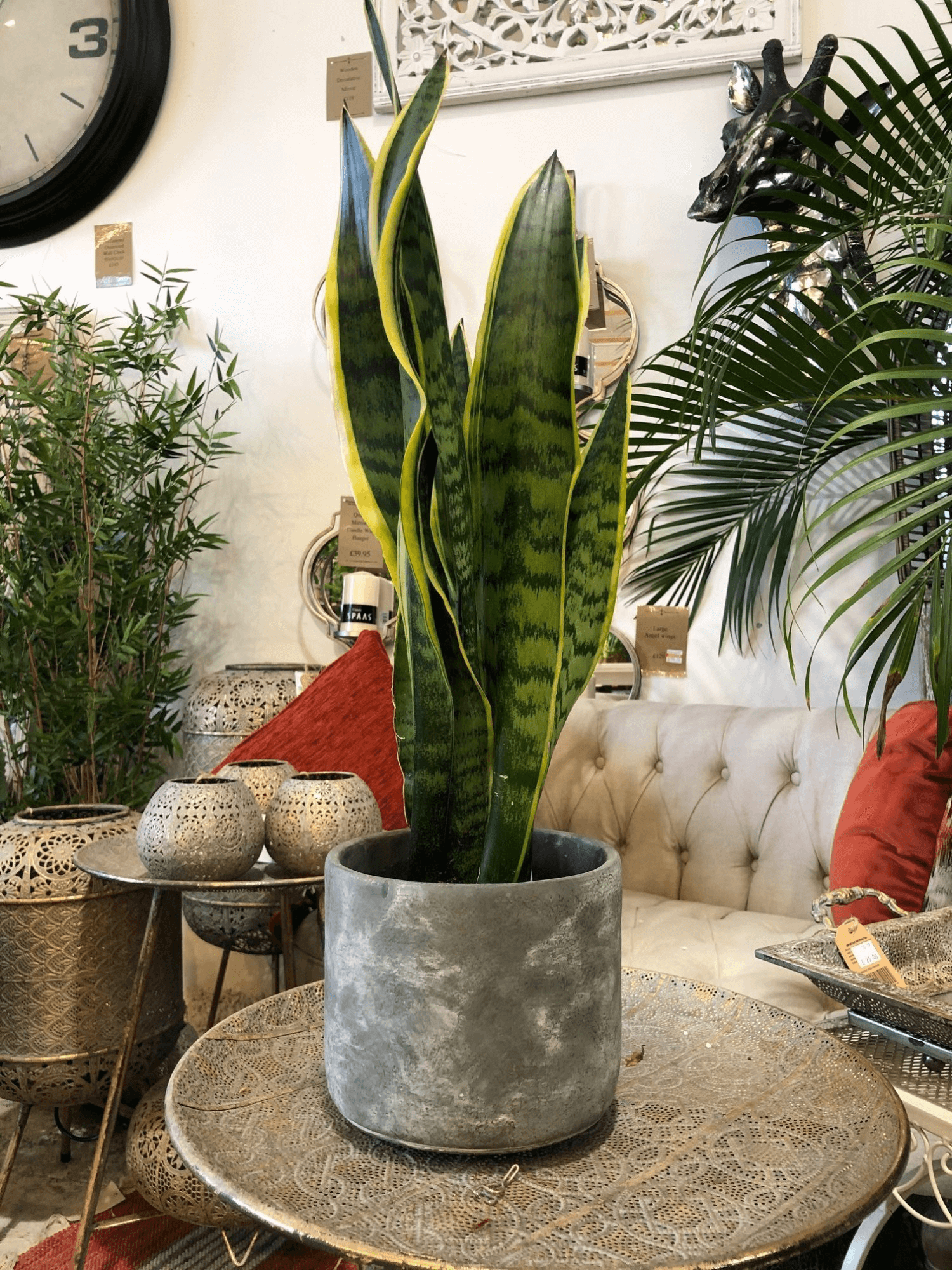 Sansevieria trifisciata - Mother-in-Law's Tongue
Sansevieria trifisciata - Mother-in-Law's Tongue
• Hard to Kill
• Easily Propagated via Leaf Cuttings
• Life Expectancy & Spread - 15 years, up to 1m in height & 5m in width.
Sansevieria have been around in homes for over two hundred years, since its discovery in the mid 18th century. The combination of its drought-tolerance and ability to endure most light levels makes this genus one of the best for beginners and shady corners alike. Not only that, but most species within the Sansevieria genus (now known as Dracaena) are an excellent option to cleanse your home's interior!
7. Common English Ivy
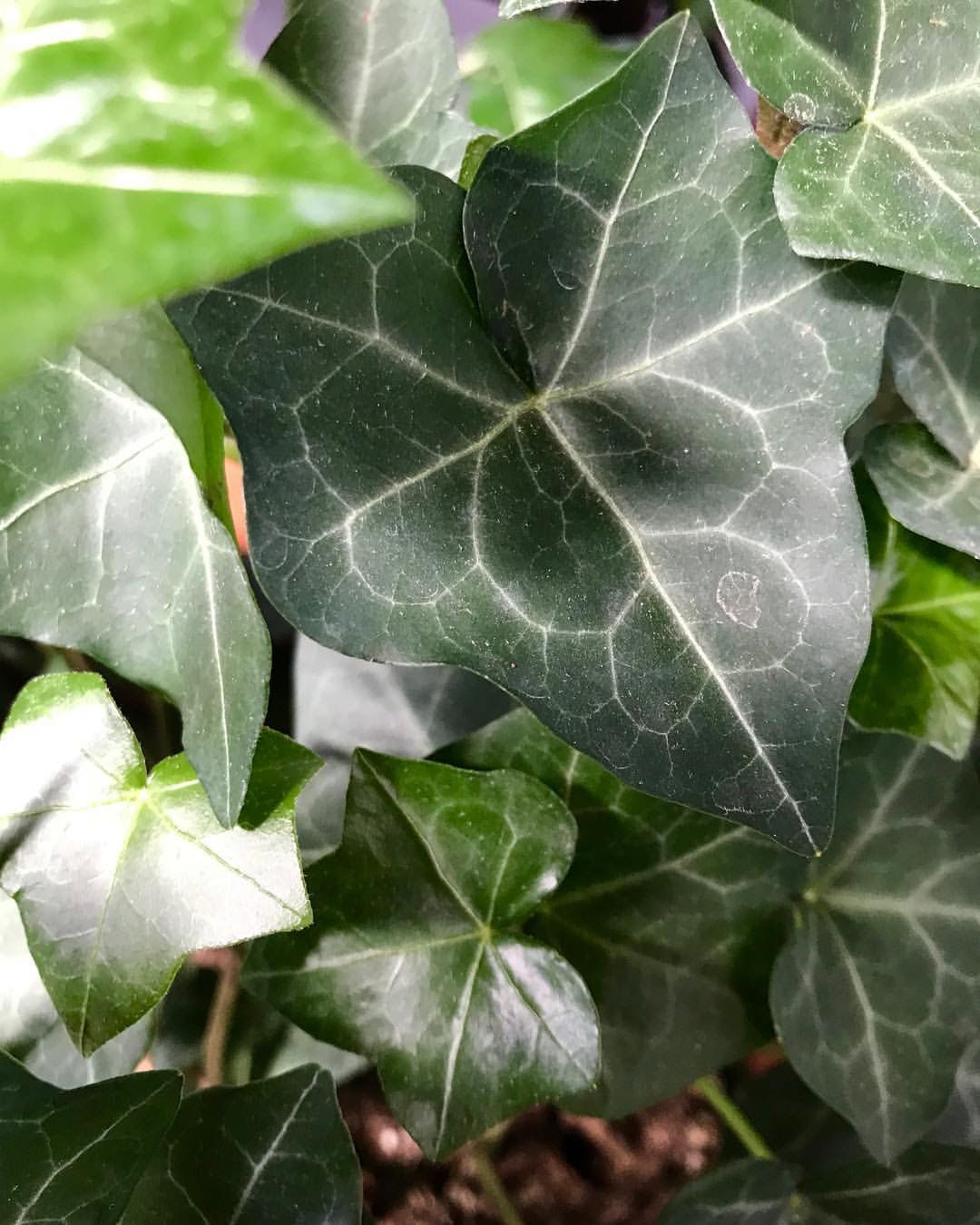 Hedera helix
Hedera helix
• Rapid Growth
• Easily Propagated via Vine Cuttings
• Life Expectancy & Spread - 6 years, up to 3m in vine length.
English Ivy are useful for many things, as they'll provide a rustic texture whilst removing many toxins, including airborne faecal matter, from the atmosphere. You'll find this plant in many garden centres, with silver or gold variegations becoming the new trend.
8. Anthurium andraeanum - Flamingo Plant
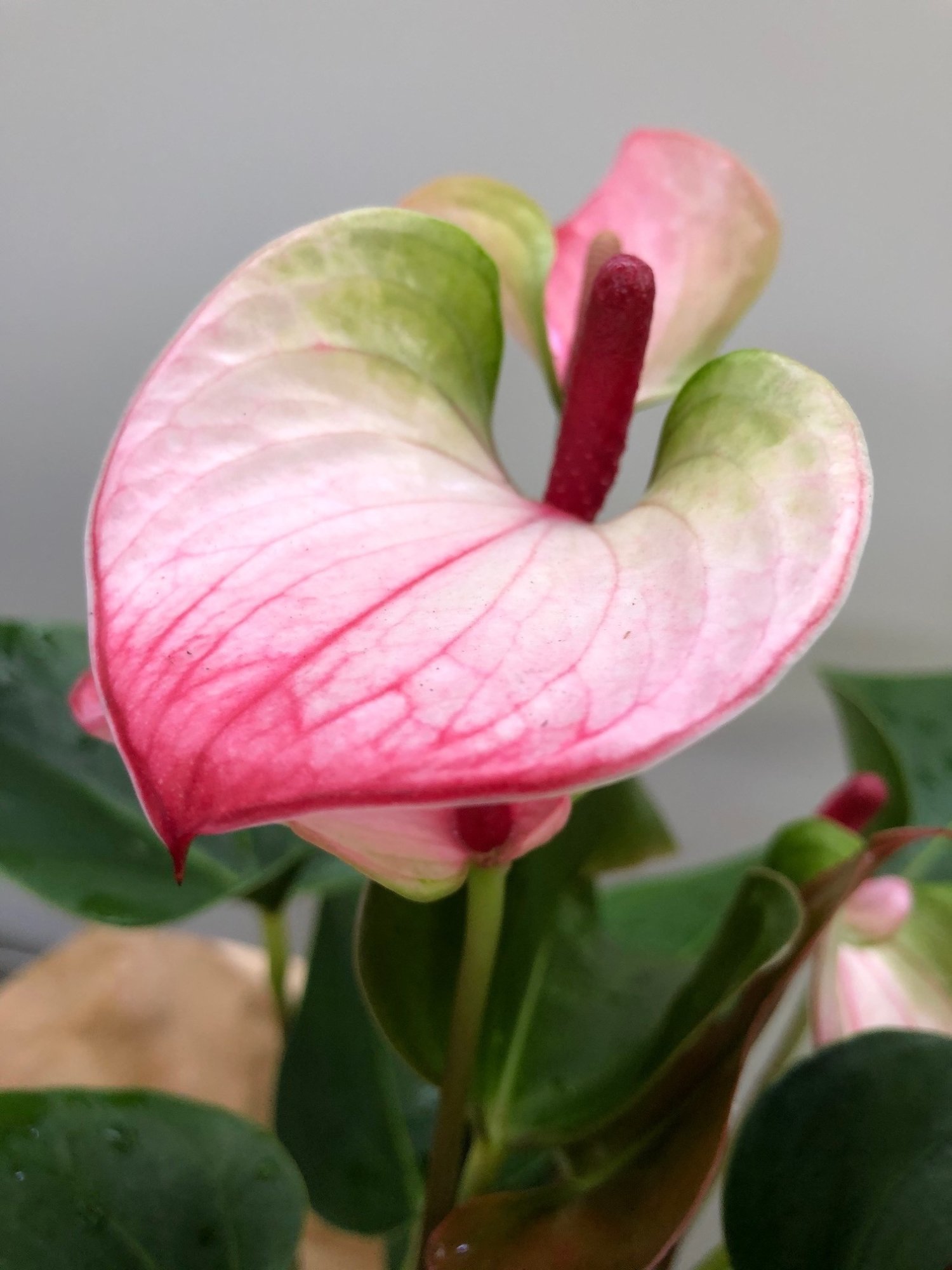 Anthurium andreanum
Anthurium andreanum
• Easy Care
• Perennial Flowers
• Life Expectancy & Spread - 8 years, up to 0.5m in height & 0.8m in width.
Each individual flamingo flower will last up to six weeks, providing you with a splash of colour and fresh air. Anthuriums are available at all garden centres throughout the year, sporting a range of different colours that include white, red, pink and even black (dark purple).
9. Barberton Daisy
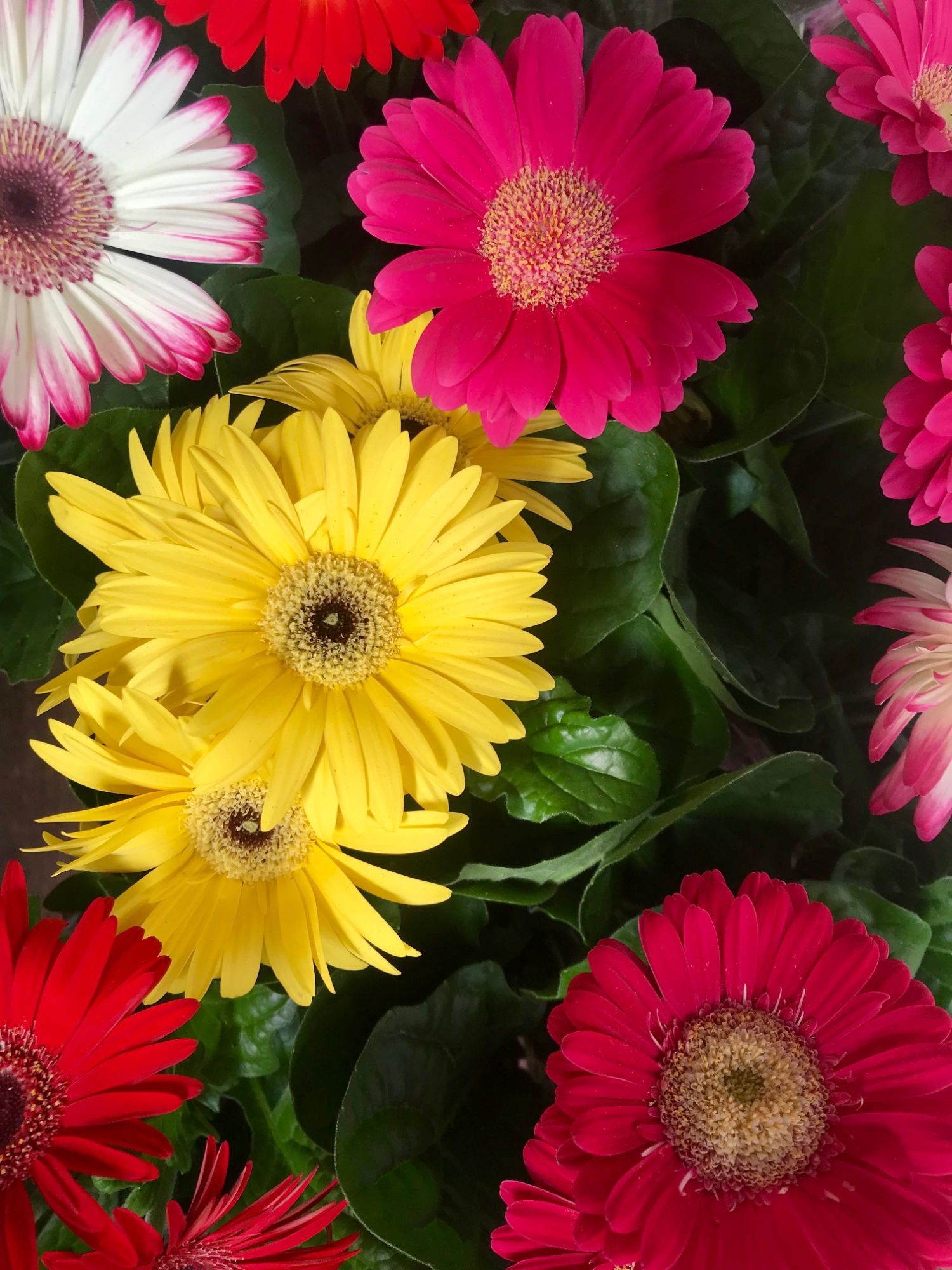 Gerbera jamesonii
Gerbera jamesonii
• Cheap & Cheerful
• Perennial Flowers
• Life Expectancy & Spread - 5 years, up to 0.3m in height & 0.4m in width.
Gerbera are the fifth most cut flower in the world, behind Chrysanthemums, Roses, Carnations and Anthuriums - but only a few know their air-purifying powers. Gerbera can easily remove benzene, formaldehyde and trichloroethylene that are typically emitted by window cleaners, some plastics and synthetic fibres.
10. Boston Ferns
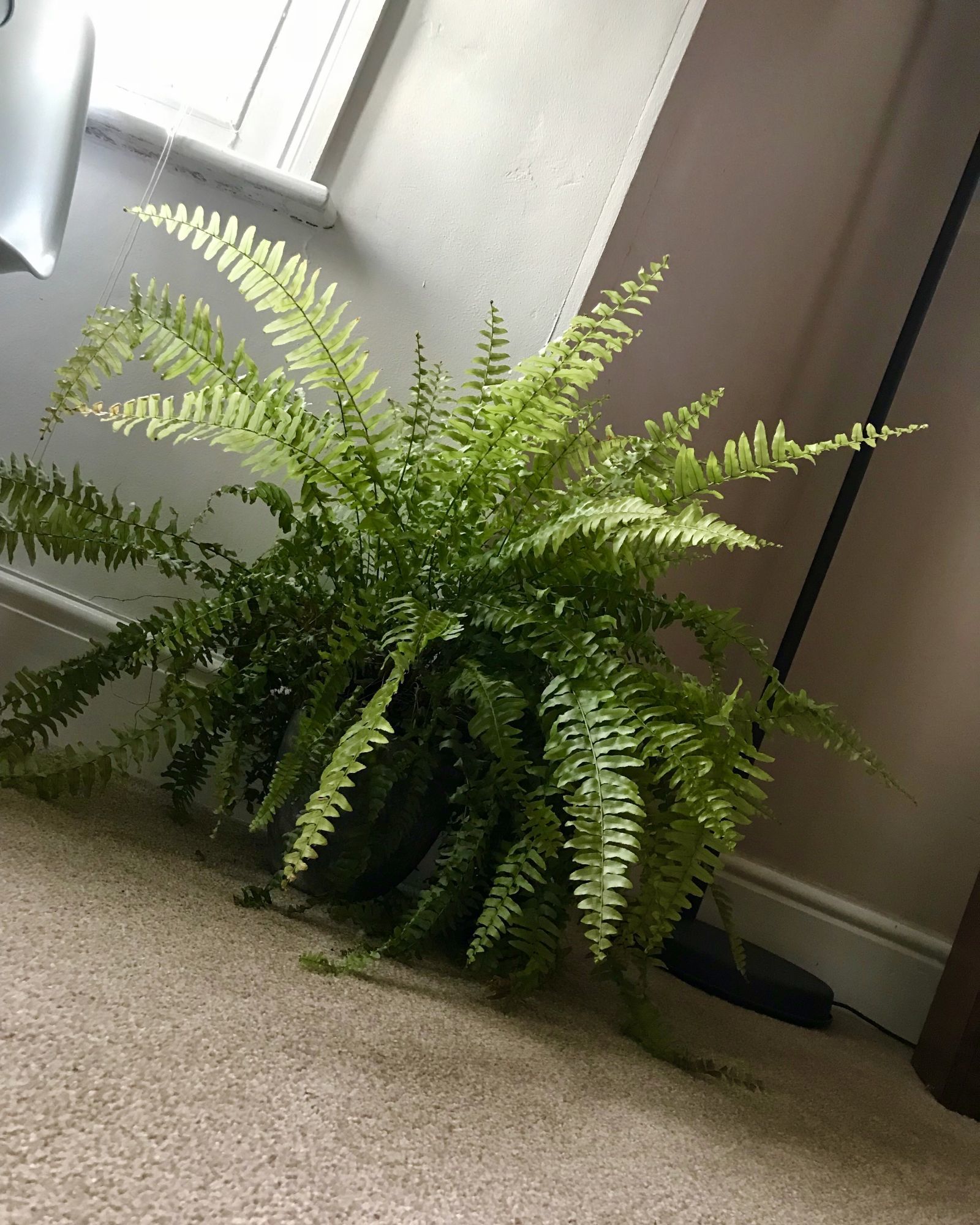 Nephrolepis exaltata
Nephrolepis exaltata
• Pet-Friendly
• Ideal for Dark Bathrooms
• Life Expectancy & Spread - 10 years, up to 1m in height & width.
Boston Ferns are another good example of a non toxic, air-purifying houseplant that can be played in a range of indirect light levels. The only issue is their slightly difficult care requirements; they must be situated in a humid, moist environment to avoid browning leaf tips and foliage.
Other Non-Mentioned Specimens
Most houseplants will remove toxins and carbon dioxide from the atmosphere, even if they're not labelled as air-purifying. Again, the plants in bold are pet-friendly.
- Aglaonema - Chinese Evergreen (Formaldehyde, Benzene)
- Aloe Vera (Formaldehyde, Benzene)
- Bromeliads - Aechmea, Billbergia, Bromelia, Cryptanthus, Guzmania, Helicodea & Vrisea (Formaldehyde & Benzene)
- Calathea & Maranta - Prayer or Living Plants (Formaldehyde, Trichloroethylene & Benzene)
- Devil's Ivy - Epipremnum, Scindapsus or Pothos (Trichloroethylene, Xylene)
- Dracaena - Dragon Tree, Corn Plants & Lucky Bamboo (Trichloroethylene, Xylene)
- Ferns - Boston (Nephrolepis), Blechnum, Dryopteris, Maidenhair (Adiantum) & Rabbit Foot Ferns (Formaldehyde, Benzene)
- Palms - Parlour, Areca, Fishtail* & Kentia (Ammonia) *Not Pet-Friendly
- Spider Plants (Large Amounts of Carbon Dioxide, & Xylene)
Book a 1-to-1 Consultation with THE HOUSEPLANT DOCTOR™
Need realtime advice for your houseplants? Book a video or message consultation with expert Joe Bagley, THE HOUSEPLANT DOCTOR™ (author or ukhouseplants.com). Choose between a ten or thirty-minute session & a platform of your choice (WhatsApp, FaceTime, Facebook Messenger or Zoom). Ask unlimited questions in one session, including queries on your dying/challenging plants, pests eradication, terrariums, repotting advice & everything in between! Available worldwide.